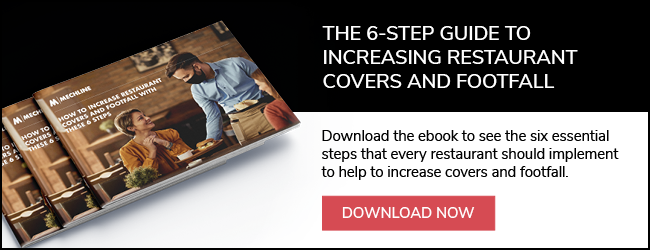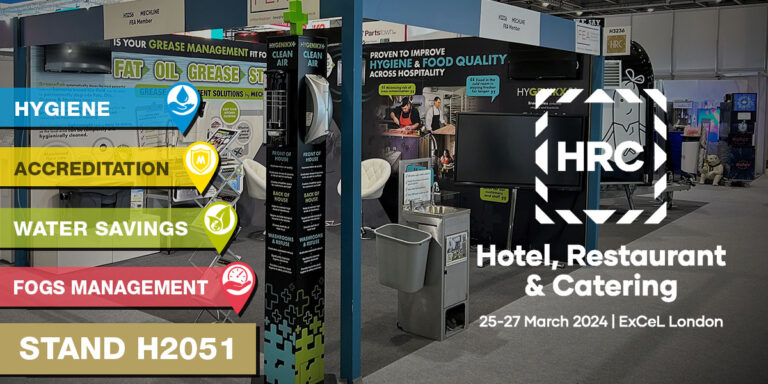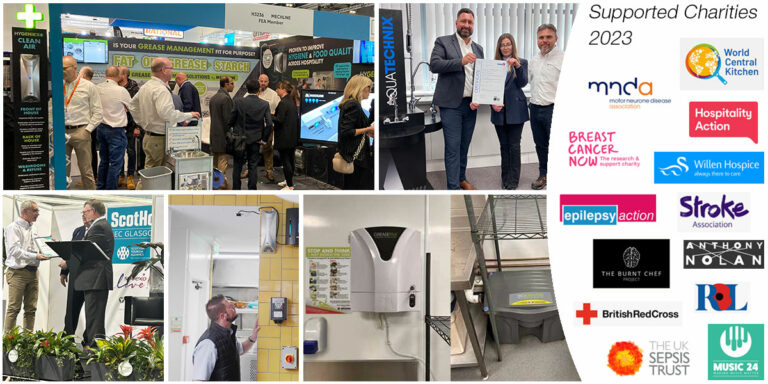It almost goes without saying that running a business in the hospitality space has proven challenging over the past year. The coronavirus health crisis has turned up the brightness on the spotlight already on hygiene and safety in the sector, raising questions about how business owners can balance delivering the highest standards with giving customers the relaxing experience they want.
Consumers have also become more savvy – as adept at recognising compliance with hygiene standards as they are in identifying quality produce, seeking to understand the journey their food has been on before it makes it onto their plate more than ever before. National lockdowns aside, ongoing economic uncertainty is prompting people to be more selective in where they choose to spend their hard-earned cash.
So, how best to reassure them? Here we share our top tips to build customer confidence and keep them coming back for more…
#1 Train your staff to deliver excellent service by providing them with the knowledge to answer customer questions
Great customer service is hardly a big trade secret, but it is worth pointing out that the pandemic has shifted expectations – what constituted great customer service before is simply not going to cut the mustard now. Your staff need to know what is important to customers, as well as what you expect of them – and it is your responsibility to teach them. Get it wrong and it could cost you very dearly – especially with social media in the picture.
Make sure that each of your staff members undergoes the required training – and that it stays fresh in their mind, with a handbook or training manual and tips and requirements posted in staff areas to serve as a quiet reminder. While, in some cases, the relevant training might vary from restaurant to restaurant, there are some key etiquettes that should be observed in every single situation:
- Food should be served and cleared from the diner’s left – and drinks should be poured and refilled from the right.
- Staff should be polite and well-mannered at all times, particularly if they have to interrupt the customer.
- Food should be delivered within a reasonable time frame. This also applies to clearing plates and processing the bill. If there is a bit of a wait, customers need to be kept informed every step of the way – and kept busy with drinks and nibbles.
- Customer care goes beyond rules and regulations. Encourage staff to anticipate customer needs, smiling, greeting them promptly and refilling water glasses when necessary.
When hiring, look for qualities such as empathy, patience, and common sense – we appreciate such things can be hard to judge in an interview, so be sure to take your time where possible. Encourage great communication between staff and ensure any complaints are taken seriously. Technology such as POS systems, online reservations and tablet ordering systems can help smooth out the process.
#2 Improve your restaurants hygiene and promote the measures you have put in place
Customer confidence starts before they even walk through the door. To ensure they make it that far, you’ll need to implement and, most importantly, demonstrate that there are practices in place to keep their visitors safe and hygienic.
You will have undoubtedly already invested in new measures to keep customers safe during the pandemic. These can range from hand sanitisers and social distancing signposting to installing hands-free wash basins in bathrooms and the kitchen, or air and surface sanitisers/sanitisers.
You’ve introduced the measures; now make sure you shout about them on social media, while also communicating that these protocols will not negatively impact their experience in any way. This will ease any anxieties your customers have about returning to the restaurants they love, now and in the future.
#3 Ask for feedback, provide social proof and openly respond to complaints
Customers are sceptical – and rightly so. You’ll know which customers are likely to be responsive to requests for feedback. Whether on a form, digitally, or face to face, ask them how they feel about how close the tables are together and how they think the restaurant operation is being run. They will feel you value their opinion and feel satisfied that they have an input. Best of all, they will feel that your business cares about the things they care about: quality, community, the environment, and so on.
Once you know what customers want, share their reviews – good and bad (although obviously there is a limit), giving social proof that you take constructive feedback on board. In the same vein, be sure to respond openly to any complaints you may receive online. This shows others you can be trusted to make amends when a genuine mistake has been made.
#4 Openly communicate and provide information on the quality of your food and how you’ve acquired it
The events of 2020 have made it absolutely essential for business owners to know what is going on in their supply chain. Embrace radical transparency and traceability, showing customers that you know where every ingredient on their plate came from – and can provide proof if necessary. This level of farm-to-fork intelligence will also build more confident and responsive teams. Once again, if you do good – don’t be afraid to tell them. Involve food quality and safety teams in your marketing campaigns to help spread the word.
For more tips on how to increase customer confidence and to encourage customers to once again enjoy the experience of eating out, download our free guide ‘How to increase restaurant covers and footfall with these 6 steps’.









